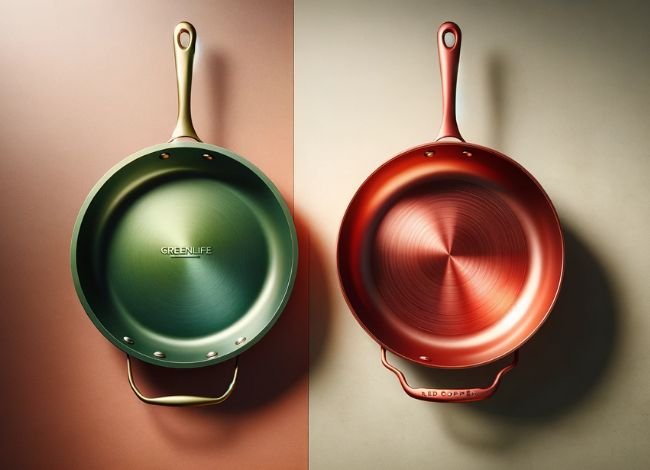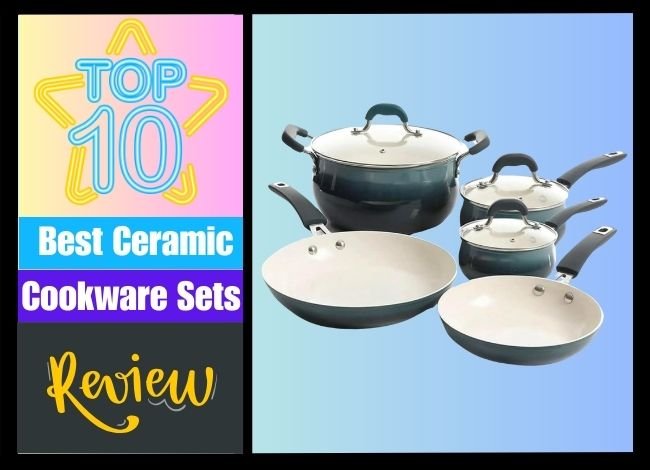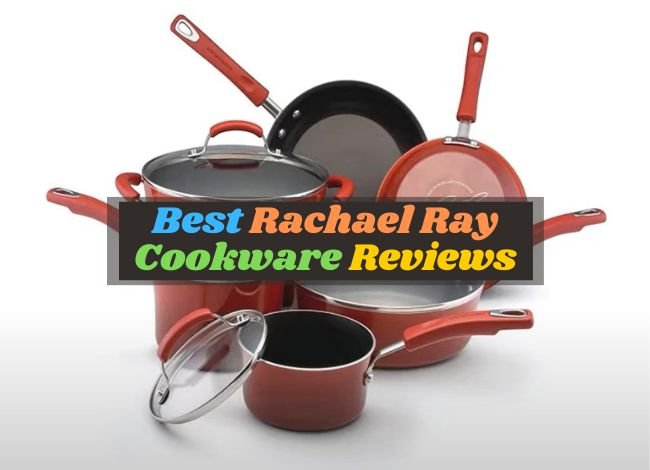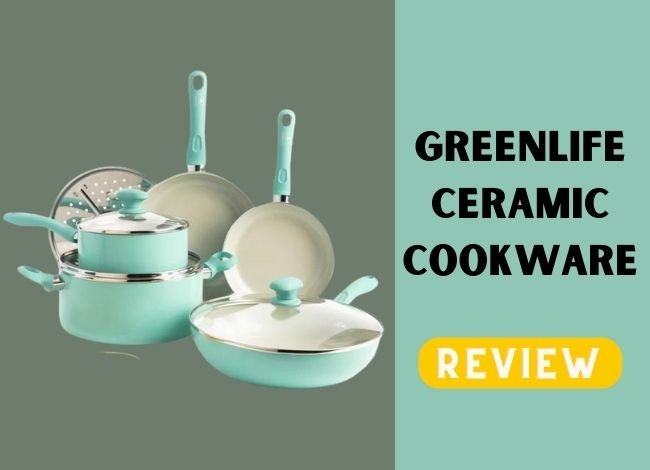Last Updated on December 25, 2023
GreenLife and Red Copper are both popular cookware brands, offering non-stick options with their unique features. While they may seem similar, the two have key differences and similarities. In this article, we’ll compare GreenLife and Red Copper cookware, including a comparison table and a discussion on the similarities between the two, to help you decide which one is right for your kitchen.
Related Post: T-fal vs GreenLife Cookware
Comparison Table:
| Feature | GreenLife | Red Copper |
|---|---|---|
| Material | Aluminum, Ceramic non-stick | Aluminum, Ceramic-infused non-stick |
| Number of Pieces | Varies by set (10-16 pieces) | Varies by set (10-12 pieces) |
| Heat Distribution | Even heat distribution | Even heat distribution |
| Oven Safe | Up to 450°F (232°C) | Up to 500°F (260°C) |
| Dishwasher Safe | Yes | Yes |
| Induction Compatibility | Limited to specific sets | No |
| Price Range | $60 – $150 | $70 – $200 |
| Warranty | Limited Lifetime Warranty | Limited Lifetime Warranty |
GreenLife Cookware
GreenLife cookware is known for its eco-friendly ceramic non-stick coating, which is free from PFOA, PFAS, lead, and cadmium, making it a healthier and environmentally friendly choice. The aluminum construction allows for even heat distribution and quick heating. GreenLife cookware is dishwasher safe and oven safe up to 450°F (232°C). Some GreenLife sets are compatible with induction cooktops, while others are not.
Red Copper Cookware
Red Copper cookware features aluminum construction with a ceramic-infused non-stick coating, which provides even heat distribution and easy food release. The non-stick coating is free from PFOA and PTFE, making it a healthier choice. Red Copper cookware is dishwasher safe and oven safe up to 500°F (260°C). However, it is not compatible with induction cooktops.
What’s the Difference?
The primary difference between GreenLife and Red Copper cookware lies in the non-stick coating type and oven-safe temperatures. GreenLife cookware uses a ceramic non-stick coating, while Red Copper cookware features a ceramic-infused non-stick coating. Both coatings are free from PFOA and PTFE, but the ceramic infusion in Red Copper cookware can provide added durability and scratch resistance.
Additionally, Red Copper cookware can withstand higher oven temperatures, up to 500°F (260°C), compared to GreenLife’s 450°F (232°C), making it more versatile for various cooking techniques.
Similarities Between GreenLife and Red Copper Cookware
- Aluminum construction: Both GreenLife and Red Copper cookware sets are made from aluminum, offering even heat distribution and quick heating.
- Non-stick coatings: Both brands feature non-stick coatings free from PFOA and PTFE, making them healthier options than traditional non-stick coatings.
- Dishwasher safe: GreenLife and Red Copper cookware are both dishwasher safe, making clean-up easy and convenient.
- Price range: Both GreenLife and Red Copper cookware sets fall within a similar price range, catering to various budgets.
- Warranty: Both brands provide a limited lifetime warranty, ensuring the quality and durability of their products.
Related Article: Copper Chef vs. Red Copper Cookware
Conclusion
When choosing between GreenLife and Red Copper cookware, consider your priorities in terms of non-stick coating, oven-safe temperatures, and induction compatibility. GreenLife cookware features a ceramic non-stick coating and compatibility with induction cooktops in some sets, making it a more flexible option for those with different stovetops.
On the other hand, Red Copper cookware boasts a ceramic-infused non-stick coating, which can provide added durability and scratch resistance. Additionally, it can withstand higher oven temperatures, making it more versatile for various cooking techniques.
In conclusion, GreenLife and Red Copper cookware sets have unique strengths, and the choice ultimately depends on your preferences and priorities. Whether you value induction compatibility, oven-safe temperatures, or non-stick performance, both brands offer reliable and durable cookware options for your kitchen. Consider your specific needs and preferences when making your decision, and rest assured that either choice will provide a satisfactory cooking experience.




